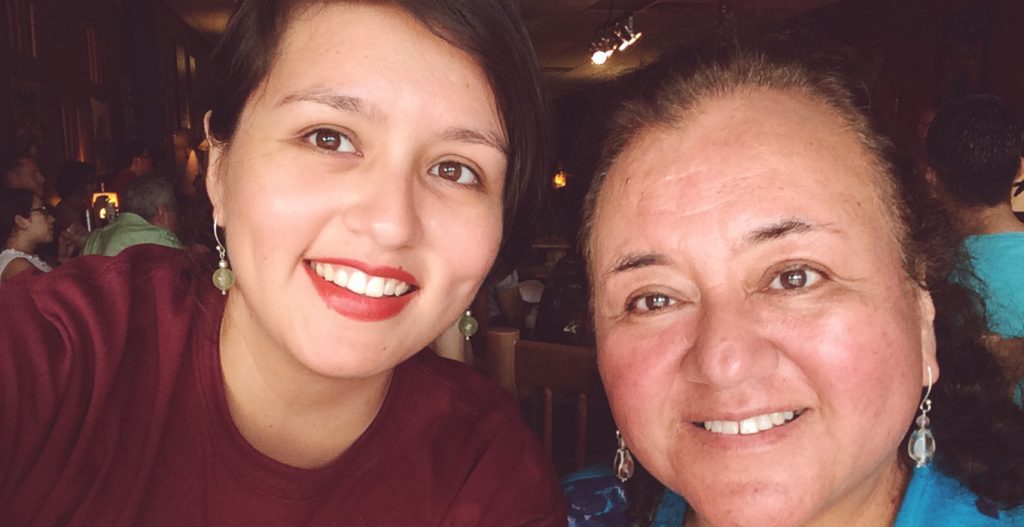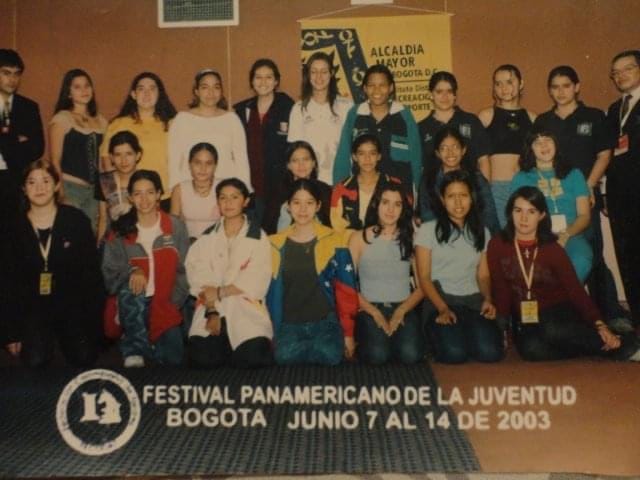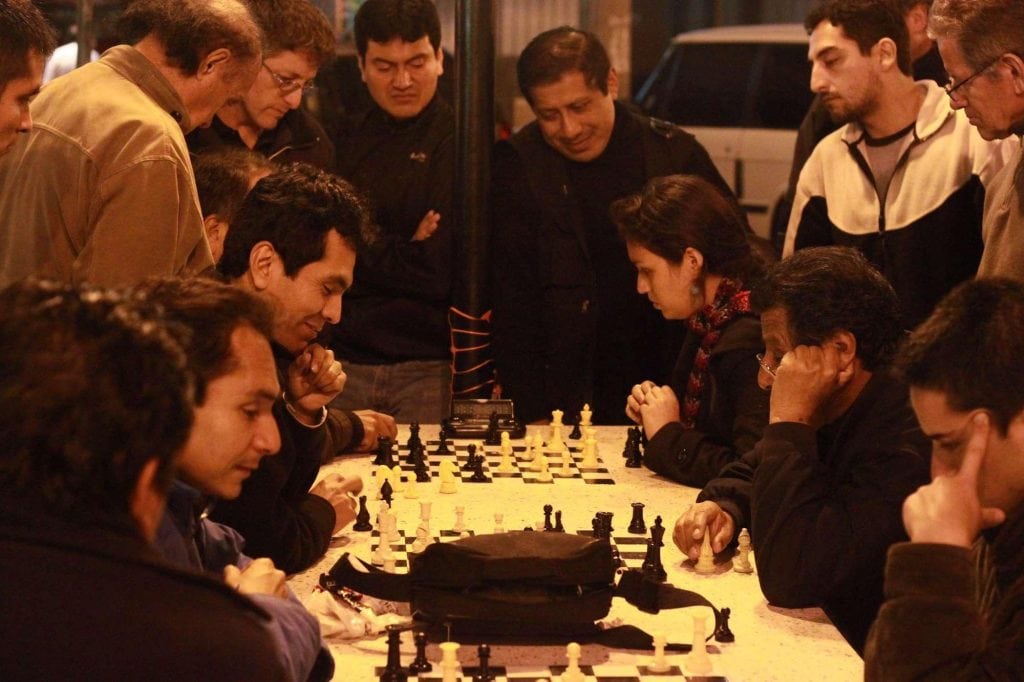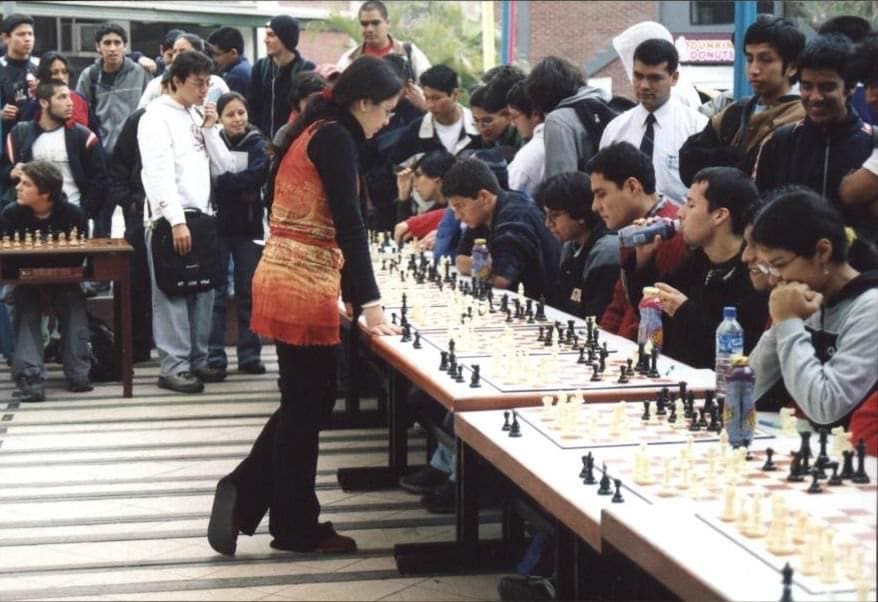Chessable celebrates women in chess every day, supporting the growing presence of female authors and making the chess world more inclusive. We are proud to grow each day with the input of talented women in our team. And for that, today, we want to celebrate one of our own, the remarkable Luciana Morales.
Luciana is part of our Operations Department, and when asked about her biggest achievement in chess, she had plenty to reflect on:
I’m proud to be the first Peruvian woman to qualify for the Women’s World Championship. I managed this when I was 16, the same year I became a WIM.
I played three World Chess Olympiads, captaining my team when I was only 19.
And I’ve been a youth pan-American champion under-16, under-18, and under-20. So, it was an honor winning these tournaments for my country, and when I was young, I felt especially proud of these achievements.
But going to University to study Government and Communications, and completing a Master’s degree in Public Policy and Management, separated her from competitive chess. Now living in Brownsville, Texas, Luciana’s FIDE rating has been 2177 for the last nine years.
I started working at Chessable last June, which was my return to chess. My job is an intersection of things I love: my passion for chess and special projects. The most visible one is FIDE Chessable Academy, a partnership between FIDE and Chessable that helps kids worldwide to access chess education opportunities and talent development.
Another role of mine is onboarding trainers to the power of Classroom, and one of the reasons I love my job so much is getting to interact with legends of chess.
One of those, of course, is the one and only Judit Polgar. She is a power user of Classroom. She hosted her global chess event in Classroom last year, so I got to work with her. It struck me how the same passion for chess you see in her games, you can also see it in her teaching, looking for excellence in every single detail.
Other female players that I’ve met through Classroom are Xie Jun, the first women’s world champion from China; and Antoaneta Stefanova from Bulgaria, also a women’s world champion.
Despite Luciana’s many responsibilities at work, she never forgets teaching.
When I was a student, I used to teach kids as a side gig. There was always a demand for chess lessons where I live. Now, in coordination with a foundation, I am teaching socially vulnerable kids in Barcelona who learn chess from scratch in the Chessable Classroom.
I’m also a teacher at the Chessable Girl Power Chess Club (an initiative to teach chess to women inside Chessable). I love teaching tactics and endgames, and WFM Maaike Keetman will be teaching openings.”
So, where does this energy and passion for chess come from? What is Luciana’s chess story?
My Mom loved chess, and in the 70s, she was one of the many people heavily influenced by the Bobby Fischer phenomenon. Unfortunately, she never got to play any tournaments because there weren’t many in Peru, but she always had a passion for chess, and to this day she plays online. Her rating is in the 1100s.

So she taught me how to move the pieces when I was six years old. Although I didn’t catch the bug then, I did play with her from time to time.
At age eight, I went to summer camp, where I specialized in gymnastics and chess. Years later I found a journal from the time, where I was beaming about gymnastics, but I do remember starting to get obsessed with chess then. I started noticing it everywhere: I would see it in the newspaper, out on the street. It made me start to rethink chess.
Most of the girls in the chess camp were older than me. They had played in tournaments, and they would beat me, so I was determined to learn more and beat them back. I’m a very competitive person, and I appreciated a duel between two people regardless of age or anything.
How did you go from there to regularly competing in tournaments and training chess?
There were two defining moments for me:
1) I remember reading in the newspaper that my coach at the summer camp was an International Master and he was going to represent Peru at an international tournament. I found it so inspiring that I wanted to become an IM and represent my country as well.
I told this to my Mom, and she was so accepting of my passion for chess that she provided me with private lessons with trainers. For the best part of my chess career (back then there weren’t sponsorships), she covered all the costs and took me to all of my tournaments. I’m thankful that my Mom was so supportive and instrumental in my career.
2) When I was 13, I played the Absolute (boys and girls) Under 16 Lima Championship. Typically capitals have all the top players, and most of them were much older than me, but I beat them all. I won the tournament with 6.5/7 – I was so proud!
I came 2nd place in the absolute under-18 Lima Championship the same year. I played many youth tournaments nationally, and I’d typically get top 5.
Also, at 13, I won my first medal in a Pan-American championship for girls, Bronze under-14.
I thought: “this is so cool I’m progressing, I can continue with my goals of becoming a master.” My Mom made sure this success didn’t go to my head, but she would celebrate with me by taking me to dinner.

What do you think was the secret for becoming so strong so quickly?
My dad was very supportive of my career too. He was very easygoing, and he would take me to the parks to play with hustlers, which is usually at night, so I needed him there. I played a lot there. Playing those guys was like a street fight which was crucial for my development.
Also, I have a lot to thank my coach. His name is Georgui Castaneda; he is Russian-Peruvian. He worked with me for seven years and eventually became a Grandmaster.
He lives in Moscow now, but his Federation is Peru. He also played a huge role in shaping many of the very strong young players on the rise lately: players like the Cori siblings (WGM Daysi Cori Tello, twice a girl’s World Champion, and three-time Pan-American women’s champion; GM Jorge Cori Tello, Olympic Gold medalist, peak rating of 2689) and others like Emilio Cordova. For the last two decades, he’s been very active in shaping this talent.

Your parents influenced your career immensely. Will you replicate their support towards chess with your daughter Catalina?
I will teach her to move the pieces and support her if she decides to pursue chess. I’d try to get her into tennis or something as competitive because there are many transferable skills one can learn through sports. It doesn’t necessarily need to be chess.
How do you see the future of chess in general and for girls in particular?
When I was young, the economy of chess was very tied to results. But now the whole landscape has changed; Magnus Carlsen has really made great changes in chess. You no longer need to be a professional to make a living in chess – you can be an author, a streamer, anything. We’re at an incredible moment in chess overall.
I think efforts like the Queen’s Gambit, FIDE’s “Year of the Woman, Jennifer Shahade’s book “Chess Queens” and our projects at Play Magnus Group and Chessable are all trying to welcome more women into chess. But we also need to think of how to retain them.
It’s difficult once they go to a tournament and have negative experiences. A couple of weeks ago, in the US, a team called ‘She told me she was 1800’ was awarded best team name at a tournament. That’s terrible. The organizers allowed it, and the people there applauded it. That’s why I think a big part of helping retain women in chess is transforming male players into allies. Hopefully, most of the players will become more outspoken and call out any derogatory or disrespectful behaviors from other colleagues.
The results of the Chessable Gender Study will be very compelling. What is specifically causing women to drop off? The dropout starts at around age 8-13, and there’s a correlation between that age and a drop in confidence. This topic is very fascinating to me because I would like to make a difference.
I’m trying to make a dent by working on a Chessable course about Women’s World Champions. As a chess player, when you study history you learn about all the “great predecessors”, but very seldom do we learn about the Women’s Champions and their style of play. It’s been a very eye-opening journey for me as well. In particular, I’m in awe of Nona Gaprindashvili, the first woman to achieve GM, a very aggressive player ahead of her time, and one that paved the way for other women.

In your opinion, what else can be done to reduce the gender gap in chess?
I think part of the problem is that the perception “women don’t belong in chess” is not only an internal thing (as many male players create an unfriendly environment for women) but that people who see chess from the outside also believe this. As they see mostly male players in the chess world, they’re under the impression women are weaker.
Girls do need more role models in chess, but I think there are so many aspects that we could tackle at the same time. There is low-hanging fruit. For example, the Peruvian Chess Federation, for the longest time, had no bathroom for women. We have blatant examples of discrimination, but there’s also the day-to-day things, and in chess, the sum of little advantages counts.
When I won the Under-16 Lima Championship, it was unexpected, the Federation didn’t know what to do and awarded an additional first-place for girls. It was like saying a girl couldn’t be Absolute Champion. It didn’t bother me at the time, but now I understand why this was wrong.
My point is that without going too far, there is low-hanging fruit that can change, like the education of the arbiters. Girls are not there to ‘distract’ the male gaze. Different cultural shifts need to happen. So that we can portray to the outside that chess is welcoming to women.
I also think that we still need female titles. Because there are girls out there, this motivates and encourages them to keep playing and to win. We are not yet at that point of eliminating the female category; the level of participation is still very low. Ideally, at some point, we can come to terms that chess is a mental sport, and there is no need to separate. I think we’re slowly moving in the right direction, but at the moment, we’re not there yet.




